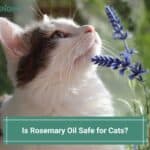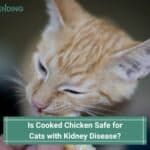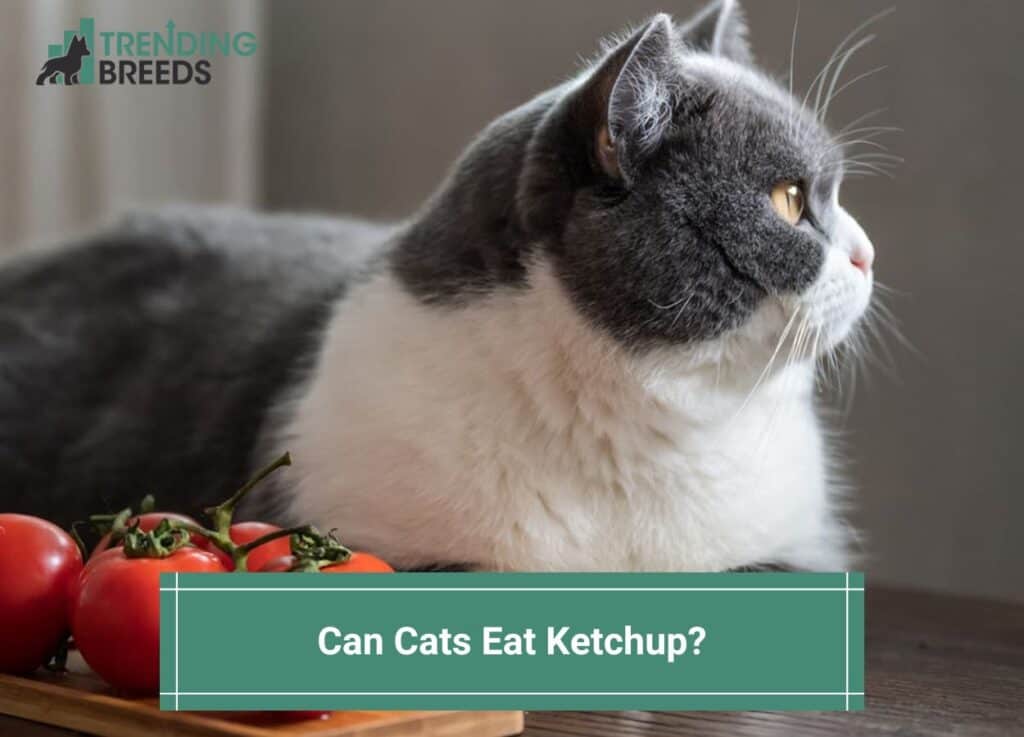
Can cats eat ketchup? If your cat asks for a taste when you’re slathering ketchup on a hot dog and enjoying a round of barbeque, you may have considered it. But can cats safely consume ketchup as humans can?
Cats cannot safely consume ketchup on a regular basis. A small lick won’t hurt them, but they shouldn’t eat it.
While a small quantity of ketchup may not necessarily be harmful to your cat, it does contain several substances that, when consumed in sufficient amounts, could have more serious effects.
For additional details, continue reading.
Other articles you would like: My Cat Is In Heat And Won’t Shut Up – What Should I Do? and How To Get A Cat Out Of Heat With A Q Tip?.
Table of Contents
Why Can’t Cats Eat Ketchup?
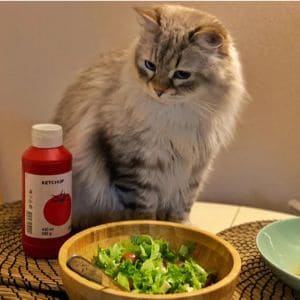
Ketchup should not be given to your feline companion primarily due to its components. The components in tomato ketchup, including tomato, garlic, onion, vinegar, sugar, salt, and many more, won’t improve your cat’s health. What’s more, cats cannot eat these ingredients independently. Cats are carnivores.
Although tomatoes are good for humans and contain vitamins and fiber, cats do not benefit from them. These nutrients are necessary for your feline friend, but they get them from meat.
There are high-quality cat meals available that provide the fiber and vitamins your cat needs. Therefore, there is no need for your pet to attempt to satisfy these demands by consuming tomatoes or ketchup!
Although a few licks wouldn’t substantially endanger your pet’s health, more ketchup might harm your cat. And here is why.
Harmful Ingredients in Ketchup
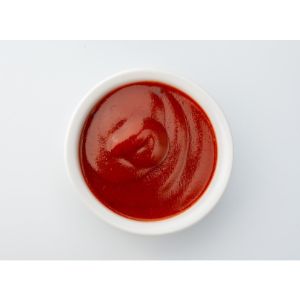
People frequently disregard the product information on the back of the container since ketchup is so widely used as a condiment to foods that we have been consuming since childhood.
If you have a cat, you should reconsider some of the ingredients because they might harm your kitty.
Whether they are sweet, spicy, or sour, humans are accustomed to enjoying a range of meals, spices, and condiments. On the other hand, cats may not be safe from something that does not endanger humans.
1. Onion and garlic
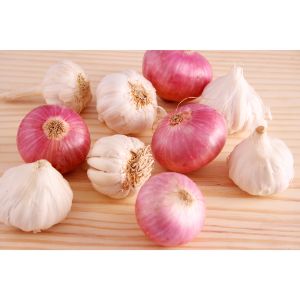
The majority of ketchup contains a ton of onion and garlic powder! Regardless of how they are prepared, garlic and onions are extremely harmful to cats. These foods can damage the blood cells.
Cats that have had their red blood cells damaged over an extended period of time may develop a specific kind of anemia known as “Heinz body anemia.” The name of this illness, however, is not related to the “Heinz” ketchup company itself.
Fever, exhaustion, lack of appetite, colored urine, shortness of breath, and pale skin, lips, and gums in cats are all signs of Heinz body anemia. Since this ailment may be fatal to cats, any symptoms should be treated carefully.
Onion and garlic powders can also have several immediate effects on cats. Eating onion or garlic can make your cat feel sluggish, lethargic, and less hungry.
2. Vinegar
Since vinegar doesn’t particularly appeal to our noses, we can be confident that our cat doesn’t enjoy the fragrance either.
It has a high acetic acid concentration, making it unsuitable for our kitties even if it may help humans control their blood sugar levels.
Some cats may be sensitive to vinegar, resulting in rashes on their delicate skin. In addition, vinegar might harm your cat’s digestive tract due to its high acid content.
If you’re wondering whether cats can eat ketchup, vinegar is one of the key reasons the answer is no.
3. Sugar

Sugar is another core ingredient in ketchup. Humans might enjoy sweets, but cats don’t. Because cats lack the taste receptors that humans employ to detect sweetness, they cannot perceive sugar or other sweet foods in general.
Your cat’s health shouldn’t be seriously threatened by sugar, but they shouldn’t consume it either way. Although sugar may not be as bad for them as garlic and onions are, you should still be cautious because it might have long-term negative effects.
Sugar consumption can negatively affect your cat’s health, including obesity, diabetes, and dental issues. Sugar is not harmful but does not benefit your cat, so you should stop offering it to them.
4. Salt
Despite being on the other side of the flavor spectrum from sugar, salt is not necessarily safe for your pet. In essence, salt is sodium chloride, which is absolutely harmless for us but potentially harmful to cats.
Nearly every day, people utilize salt in the kitchen, and what other area of the house does a cat enjoy more than the kitchen?
Ketchup falls into this category as well due to its high salt level. One tablespoon of ketchup contains around 150 milligrams of salt.
The calculations should make you concerned, especially because even one teaspoon of salt is deadly to your cat!
Consuming too much salt might make your pet ill and uncomfortable. Additionally, it may cause nausea, vomiting, or intense thirst.
While one cat could have less serious symptoms, salt can also lead other cats to experience more serious symptoms like seizures or a coma!
What If My Cat Ate Ketchup Already?

You don’t need to freak out if your fluffy friend decides to lick a slice of pizza. However, you should be alert for any possible indications of danger.
Expect vomiting, diarrhea, and appetite loss if your cat ate ketchup and is experiencing digestive issues.
These are the typical signs and symptoms of gastrointestinal discomfort. We highly advise taking your cat to the clinic if these symptoms appear!
We know how costly veterinary appointments may be and how upsetting it can be for our precious friends to be pulled from the comfort of their homes for a few injections.
So aim to prevent that scenario by strictly monitoring your cat’s food, providing for her nutritional requirements, and avoiding ketchup.
Make sure that you remember everything you learned in this article as you enjoy some pizza and cuddles with your cat. Ketchup is not something cats can or should eat.
Can Cats Eat Tomatoes?
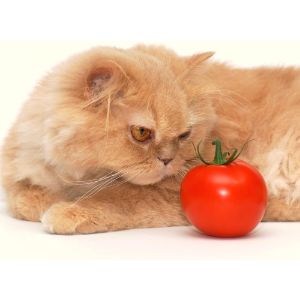
Cats cannot eat tomatoes. Tomatoes are an antioxidant- and vitamin-rich fruit that is good for people.
Vitamins A, C, K, potassium, fiber, and lycopene, present in high concentrations and demonstrated to provide several health advantages for people, are all abundant in tomatoes.
Despite the information on tomatoes’ positive effects on human health, it is incorrect to believe that cats that eat tomatoes will also experience similar advantages.
Tomatoes cannot be digested by cats’ digestive systems, so if they consume them in large quantities, they may result in nausea, vomiting, or diarrhea.
It is crucial to remember that unripe green tomatoes, together with their stems and leaves, pose a greater risk to your cat. All tomato plant components, including the stem and leaves, are poisonous to cats, even unripe tomatoes.
Cats and many other animals can be poisoned by solanine, a poisonous substance in these green plant portions.
A cat may develop severe vomiting, drowsiness, a critically slow heartbeat (bradycardia), and gastrointestinal discomfort if it consumes unripe tomatoes, tomato plant leaves, or stems.
Although completely cooked green tomatoes are safer since they don’t contain active solanine, they might still irritate the stomach if you consume many of them.
What Portion of Tomato Can Cats Eat?
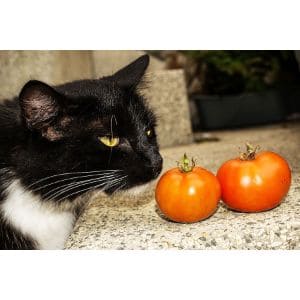
You may sometimes give your cat small portions of mature tomato flesh if they like the fruit. Nevertheless, it is advised that you offer no more than one or two bits of tomato flesh at a time. Monitor their reactions.
If your cat eats any more of the fruit, keep an eye out for any indications of gastrointestinal discomfort, including vomiting, stomach pain, or diarrhea. You should call your veterinarian right away if any negative symptoms appear.
Is Tomato Soup Safe for Cats?

Cats cannot eat tomato soup. This is not safe for consumption.
There is a possibility that the tomato soup you purchase from a shop will be bad for your cat. The majority of these store-bought soups are made with components and chemicals that are unsuitable for cats.
If your cat licks a bit of tomato soup, they should be ok. But in general, avoid feeding your cat tomato soup. Cats are carnivores. They eat meat, not vegetables.
Frequently Asked Questions
Can My Cat Eat Scrambled Eggs?
Your cat can indeed eat scrambled eggs, as long as you don’t add extra ingredients like pepper or salt. Eggs are safe for cats and even preferred.
Can My Cat Eat Cucumbers?
Your cat can eat cucumbers in moderation. Since it is a vegetable, chances are your cat won’t like cucumber. But if they want to taste it, a small slice will not hurt them.
Can My Cat Eat Mayo?
Cats love mayonnaise because it contains eggs. But while they may beg for a taste, mayonnaise is not good for cats. A lick won’t hurt them, but avoid giving it to them.
Ketchup is Bad for Your Feline Friend
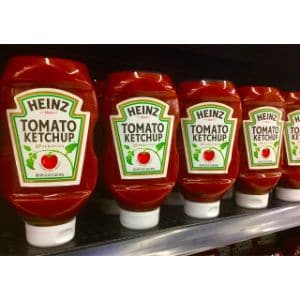
By this point, it should be evident that cats cannot consume ketchup. Cats should not consume condiments or meals with artificial chemicals, spices, or salt.
Like so many other human foods, ketchup can make your cat ill and have long-term health effects.
You will also like:
You can learn more about cats diet by watching “Cat Food 101: What, When, & How Much to Feed Your Cat” down below:

